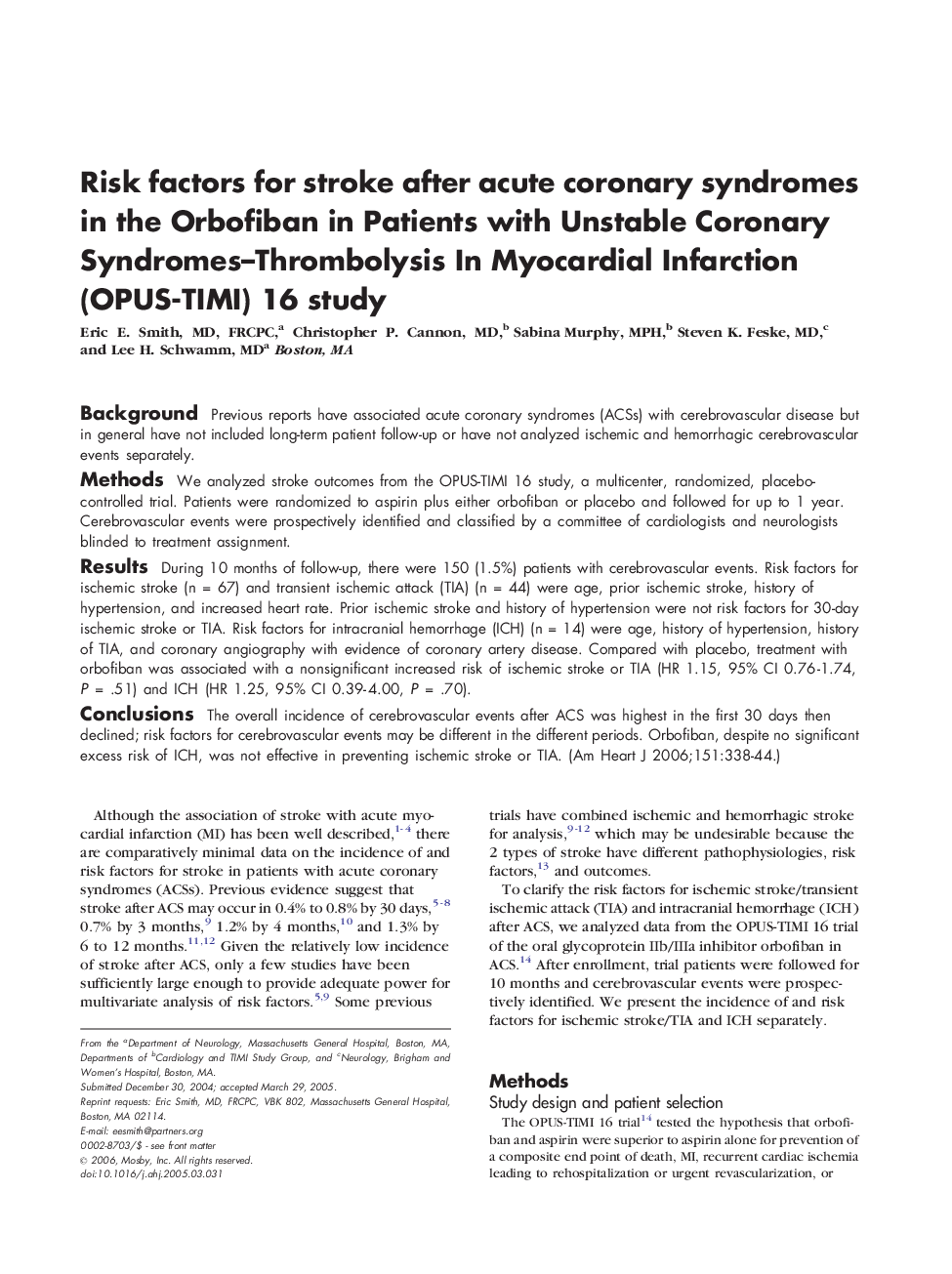| Article ID | Journal | Published Year | Pages | File Type |
|---|---|---|---|---|
| 2852026 | American Heart Journal | 2006 | 7 Pages |
BackgroundPrevious reports have associated acute coronary syndromes (ACSs) with cerebrovascular disease but in general have not included long-term patient follow-up or have not analyzed ischemic and hemorrhagic cerebrovascular events separately.MethodsWe analyzed stroke outcomes from the OPUS-TIMI 16 study, a multicenter, randomized, placebo-controlled trial. Patients were randomized to aspirin plus either orbofiban or placebo and followed for up to 1 year. Cerebrovascular events were prospectively identified and classified by a committee of cardiologists and neurologists blinded to treatment assignment.ResultsDuring 10 months of follow-up, there were 150 (1.5%) patients with cerebrovascular events. Risk factors for ischemic stroke (n = 67) and transient ischemic attack (TIA) (n = 44) were age, prior ischemic stroke, history of hypertension, and increased heart rate. Prior ischemic stroke and history of hypertension were not risk factors for 30-day ischemic stroke or TIA. Risk factors for intracranial hemorrhage (ICH) (n = 14) were age, history of hypertension, history of TIA, and coronary angiography with evidence of coronary artery disease. Compared with placebo, treatment with orbofiban was associated with a nonsignificant increased risk of ischemic stroke or TIA (HR 1.15, 95% CI 0.76-1.74, P = .51) and ICH (HR 1.25, 95% CI 0.39-4.00, P = .70).ConclusionsThe overall incidence of cerebrovascular events after ACS was highest in the first 30 days then declined; risk factors for cerebrovascular events may be different in the different periods. Orbofiban, despite no significant excess risk of ICH, was not effective in preventing ischemic stroke or TIA.
